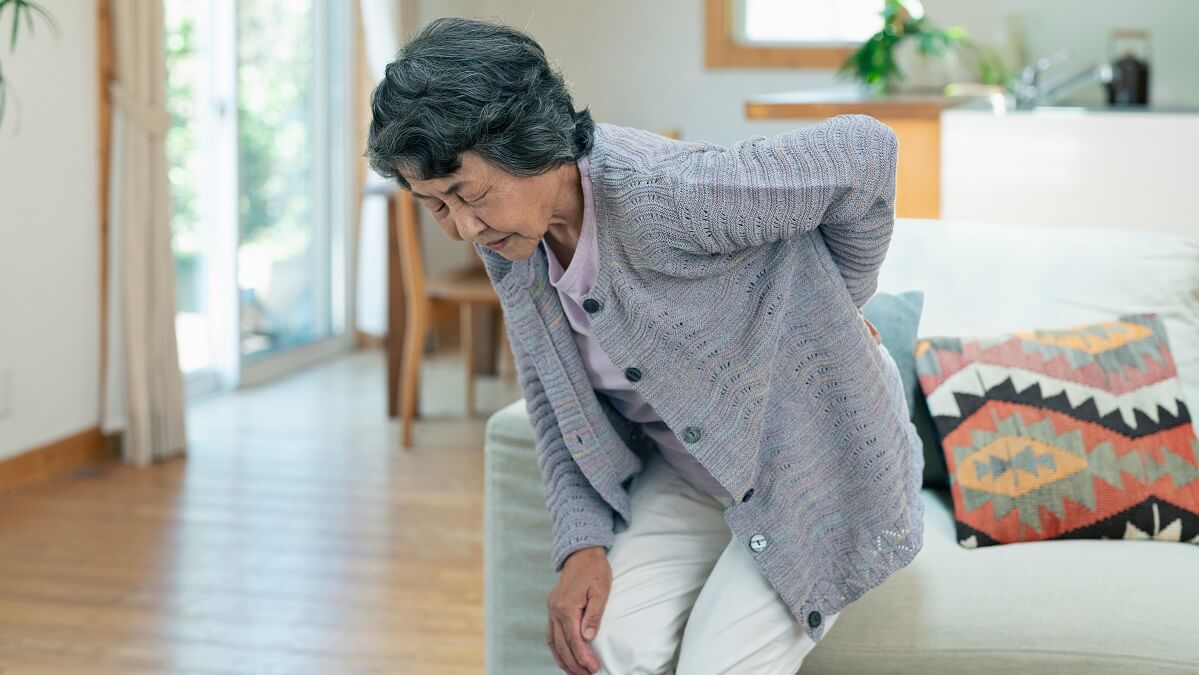We all experience pain in varying degrees and frequencies, but about 40 per cent of older Australians are reluctant to discuss it.
A study conducted by consumer health company Haleon has uncovered concerns about how baby boomers would be perceived when mentioning the subject. The findings form the basis of what the company has labelled the Haleon Pain Index (HPI).
The index is a global longitudinal social study conducted by Edelman Data x Intelligence. First conducted in 2014, the study is “designed to give a voice to those experiencing pain”, says Haleon. It also aims to assess discussion of the topic.
Haleon says a particular focus in 2023, the fifth edition, was to assess barriers to effective pain treatment. That assessment involved 18,097 people across 18 countries, including Australia.
Instructive in the Australian data is that, of the boomers, it is the pre-retirement bracket (ages 59-66) who worry about broaching the subject of pain. Each of the various reasons expressed for this reluctance represented around four in 10 of those surveyed.
A break-down of those reasons:
- 41 per cent of pre-retirement baby boomers feel misunderstood about their pain by people around them.
- 39 per cent of pre-retirement boomers say they feel discriminated against in their experience (27 per cent post-retirement).
- 39 per cent say being in pain is too much of a taboo for them to speak about openly, compared (32 per cent post-retirement).
- 40 per cent pre-retirement boomers say they feel isolated when in pain.
Neither the media release nor the accompanying HPI fact sheet speculate on the reason for the pre- and post-retirement discrepancy. One possibility is that a proportion of pre-retirees fear speaking up about their concerns could put their employment at risk.
Putting the HPI to good use
Knowing that many Australians are reluctant to discuss pain is one thing, using that knowledge is quite another. To that end, Haleon has drawn attention to its #ListenToPain program. Acccording to Haleon, the program “supports health professionals to improve communication with patients”. It also encourages “a focused discussion on pain tailored to the individual”.
Haleon says its #ListentoPain program includes five profiles that describe people with different attitudes and behaviours towards pain management. These, it is envisaged, will help health professionals customise their approach with their patients.
Elena Pintado, head of pain at Haleon, said: “The Haleon Pain Index findings are significant to Australia’s healthcare landscape. The data shines a light on the stark reality that an overwhelming number of Australians are suffering in silence when it comes to pain.”
Ms Pintado described an “urgent need for a societal shift in our approach to pain, transcending age and generation”. She said opening the lines of communication should be front and centre in this shift.
This will help “to ensure everyone’s pain is acknowledged, understood and treated with compassion,” she said.
Are you a baby boomer who is reluctant to discuss the pain you experience? Do you think your retirement status affects your willingness to discuss pain? Let us know via the comments section below.


I think that we “baby boomers” put up with, & shut up about, pain, as we don’t want to be thought of as “whingers”. Our parents & grandparents went through two world wars, & a depression, & “made do” with what they had. They impressed on our generation how fortunate we were to avoid those problems! So we grew up feeling privileged to be in the “Lucky Country” & to accept our lot in life. Unfortunately, as we age & have operations unheard of in our parents’ day, which may not always have a great outcome leading to more pain, society that we now live in is not used to pain, & looks to “fix” pain with pills, or with any number of addictions to “distract” from the pain. We need to realise that pain also has a beneficial side to it, & Hansen’s Disease, causing lack of pain in the extremities, is one of the main reasons for disfigurement from this disease!